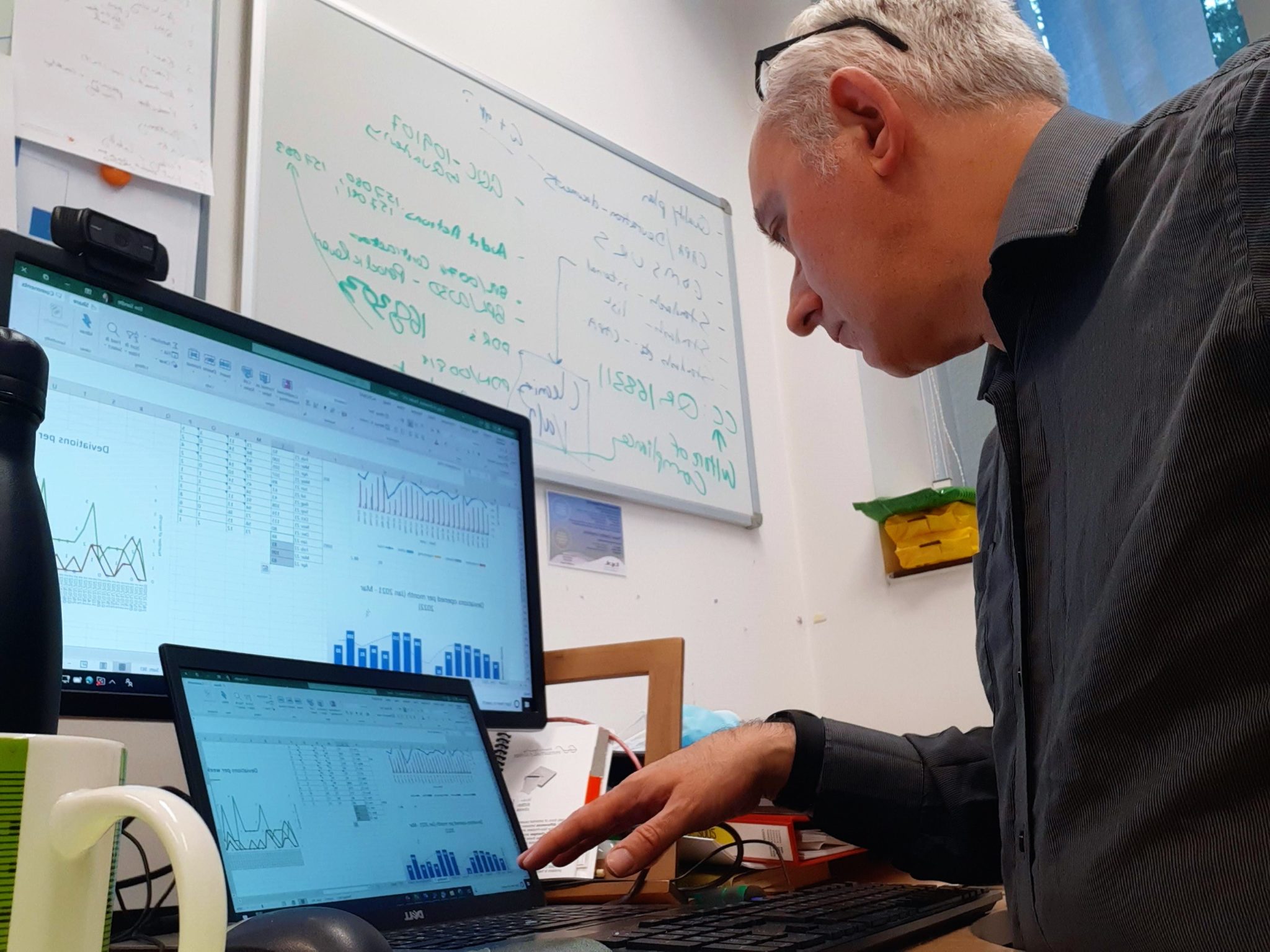 Office working looking at an Excel spreadsheet. Image by Tim Sandle
Office working looking at an Excel spreadsheet. Image by Tim SandleOn the importance of mental health in the workplace wellness topic, Adi Segal, CEO of Hapi sees audio-only, non-clinical emotional support via Active Listening as a Service (ALaaS) as an important addition to the management toolbox.
In particular, Segal seeks to tackle loneliness and to create a world in which everyone feels they belong and have value. Segal considers how business leaders can readily address the root causes of stress and burnout.
According to Segal, employee burnout is one of the greatest challenges facing the economy. In the U.S. this is to the tune of $300 billion each year, according to the American Institute of Stress. Studies show that 83 percent of U.S. workers suffer from work-related stress, with over half (60 percent) of worker absences directly related to that stress.
Not only is this a significant drain on resources that drives avoidable opportunity loss, it is also a major contributor to both mental and physical health problems.
To overcome this, modern management must take a top-down approach to support staffers, and not just hear what is being said but rather actively listen to it. A Harvard Business Review study found that active listening is a key factor in improving leadership effectiveness, which, in turn, improves employee productivity, engagement and retention.
Conversely, failing to do so presents a mission critical missed opportunity to address, and resolve, root causes of workforce stress and burnout.
According to Segal there are five red flags that can readily be identified and resolved through active listening. These are:
Social Isolation
When employees feel isolated, their emotional state is compromised and they are more likely to experience anxiety, stress and burnout–factors that can erode and impair a company’s growth.
Active listening can help leaders identify employees who are struggling with this issue and take concerted steps to help them feel more connected to a manager and the team at large. Knowing that you “belong,” feeling that you are an important “part of something” and understanding that your contributions are valued can produce a powerful and positive mindset.
Relationship issues
Whether with respect to friends, colleagues, family or a significant other, relationship problems can cause significant pain, trauma and strain that promotes burnout. By actively listening to employees, leaders can identify these kinds of issues and take proactive measures to address them before they become major problems—for the worker, department and the company overall.
Mentorship Deficits
Mentoring is an essential part of career development, but it can be challenging to navigate for both mentors and mentees. Many companies today are stretched thin and workdays are overwhelmed with tasks and to-do’s that make “free time” elusive if not seemingly impossible. Even so, it’s imperative for leaders to engage in active listening moments to help identify these guidance gaps and provide the necessary support, direction, assessment and praise to keep staffers on the right track.
Socioeconomic and financial strife
Often, an employee pool represents a variety of socioeconomic factors and income levels. No matter one’s real or self-perceived stature or actual salary, everyone is at risk of struggling culturally and economically. Active listening can be a profound form of activism, with one report underscoring the extent to which active listening can offer much-needed support to help people deal with intense and distressing emotions in relation to these particular issues that fundamentally impact nearly every aspect of our work, home and social lives.
Sub-par problem-solving
It would be an understatement to say that problem-solving is a critical capability to uphold in the workplace. In fact, problem-solving skills were cited as the most important soft skill of 2022 with fully 86 percent of employers reportedly seeking this attribute on student resumes, according to the National Association of Colleges and Employers Job Outlook 2022 survey.
Given this vital skill is hampered by communication breakdowns, active listening can help leaders identify these shortfalls, and bridge those gaps by providing the necessary understanding, explanation, support and guidance to ensure everyone is on the same page.
By





